IRGC General Says Protesters Are 'Enemy's Soldiers'

A senior Iranian Revolutionary Guard commander has said that those who chant “Woman, Life, Freedom” are the soldiers of the “enemy”, who wants to weaken Islam.

A senior Iranian Revolutionary Guard commander has said that those who chant “Woman, Life, Freedom” are the soldiers of the “enemy”, who wants to weaken Islam.
After the killing of Mahsa Amini, a 22-year-old woman by 'morality police' in September protests ignited across Iran with the slogan of "Woman, Life, Freedom."
General Mohammad Reza Naghdi (Naqdi) the deputy commander of the Islamic Revolution Guard Corps (IRGC) who was speaking Friday at a gathering of officers in northern Iran, went on to blame enemies for a “media war” during the ongoing protests.
Iran’s Supreme Leader Ali Khamenei and other top officials have been blaming the popular protests on conspiracies pursued by “enemies”, which usually mean the United States and its allies in the Islamic Republic’s jargon.
Naghdi said there is “a psychological war” being waged against the Islamic regime and the aim is “core religious beliefs” including the principle of a clerical supreme leader ruling over the Islamic nation, or ‘umma’. The IRGC general claimed that the majority of the Iranian people stand behind the regime, without mentioning the more than 400 protesters killed since mid-September.
However, he repeated officials claims that unknown individuals are killing innocent people to blame the government, while hundreds of videos on social media show security forces using indiscriminate violence in the streets.
Complaining about sanctions, Naghdi insisted that the majority of the people are ready to support the government to overcome economic hardships.
He also praised Jihadi volunteers, who act as plainclothes agents during the protests and are often responsible for killing and injuring civilians.
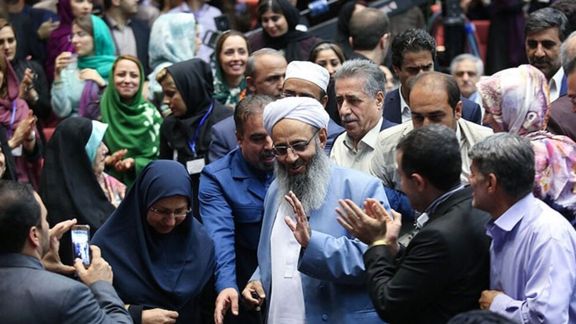
A top Sunni cleric has dismissed the Islamic Republic’s efforts to garner the support of the reformists to help contain ongoing unrest, saying the opportunity for reforms is lost.
In his Friday prayers sermons, Mowlavi Abdolhamid, officially known as Mowlavi Shaikh Abdolhamdid Esmailzehi, said whenever people were willing to go to the polls and vote for the reformist camp, they disappointed them with their inaction.
“The time was wasted, and we have lost the opportunity for reforms," said the religious leader of Iran's largely Sunni Baluch population living in the southeastern province of Sistan and Baluchestan.
"The reformists did not manage to do anything, and the biggest complaint directed at them is why they did not enact any reforms,” he said. Indirectly referring to the Supreme Leader and possibly the Revolutionary Guards and hardliners, Abdolhamid said that if reformists were stopped from pursuing reforms, “why didn't they say who stopped them? Why did they remain silent? Those who came in the name of reformism and did not do anything should have had the courage to say who didn't allow them," he said.
Emphasizing that reformists have lost their chance, he said that “If reforms had been carried out in the Islamic Republic, today the people would not be suffering from miseries, and they would not be shouting for freedom and justice during their protests.”
Mowlavi Abdolhamid, who had previously supported Reformist President Mohammad Khatami (1997-2005) and moderate conservative Hassan Rouhani (2013-2021), encouraged Iran's Sunni population to support ultraconservative Ebrahim Raisi in the 2021 presidential election. Later he complained that Raisi failed to fulfil his promises to the Sunni community while millions had voted for him. Following the killing of more than 100 Sunnis in Zahedan during recent protests by security forces, some criticized Abdolhamid for having supported Raisi.
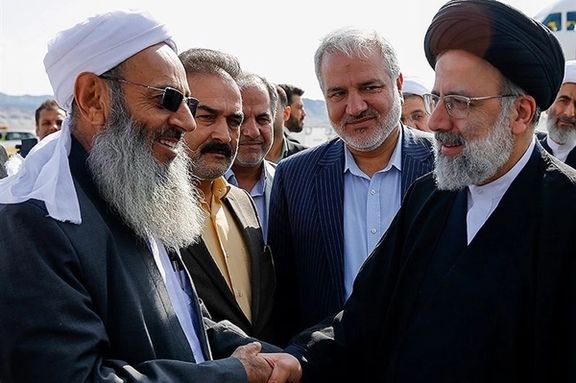
At the start of the reform movement in 1997, Abdolhamid played a key part as a charismatic leader who rallied the Sunnis behind Khatami. The history of the Islamic Republic reveals that any candidate who had Abdolhamid's support won the election in Sistan and Baluchistan and Kordestan provinces.
Abdolhamid's popularity is largely because of his willingness to challenge the absolute authority of Supreme Leader Ali Khamenei. Earlier in November, the outspoken Sunni Imam said women, ethnic and religious groups, and minorities have faced discrimination after the establishment of the Islamic Republic in 1979. He was also brave enough to blame Khamenei for the attack on protesters in his hometown, Zahedan.
He made the remarks on the backdrop of reports from recent meetings between senior officials and a number of reformist figures. Sources in Tehran say Iran's ruling hardliners are beseeching once popular reformists they purged from power to help save the regime and end the uprising. However, the reformists have been side-lined during the current wave of the protests – ignited by the death in custody of Mahsa Amini, as neither the government nor the protesters consider them a serious political alternative.
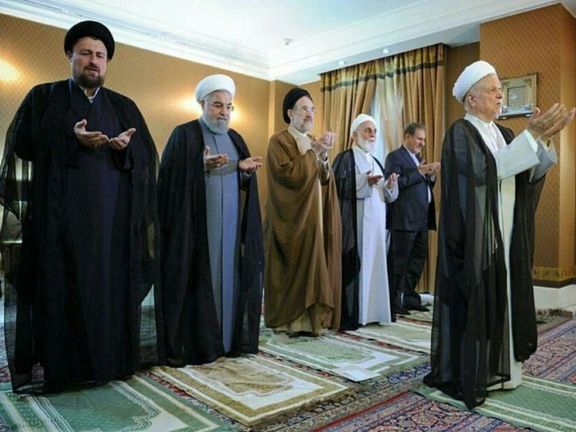
During his Friday prayers sermons, Mowlavi Abdolhamid also criticized the crackdown on the Kurdish majority cities in western Iran, praising them as one of the best ethnic groups who protected the borders like the people of Sistan and Baluchestan.
Since last week, the Islamic Republic has intensified its repression of Kurdish-majority cities and towns following reports that parts of some small towns have fallen into the people’s hands. The majority of Iran's 10 million Kurds live in the western parts of the country.
"Now that the people of Kordestan are complaining about their problems and protesting, they should not be shot at, and they should not be treated with violence," he said.
He added that if he were an official, he would listen to the peoples’ demands, noting, "It is a matter of concern that many of our officials were not ready to listen to the critics. These problems were created by those who did not allow criticism."
Taking issue with spending Iran’s money in other regional countries, the cleric said, "This country does not belong to officials and rulers. It belongs to all of us and we all want this country to be prosperous. Its wealth should be spent here instead of somewhere else."
He also called on the authorities not to give "severe sentences" to protesters and urged the release of the political prisoners, referring to death sentences issued for at least 10 people.
Expressing concern about reports of torture and sexual harassment of prisoners, Abdolhamid cautioned, "There are some reports of mistreatment of prisoners, especially female prisoners, that are difficult for me to say... Torture is against the constitution and is not allowed in any religion."
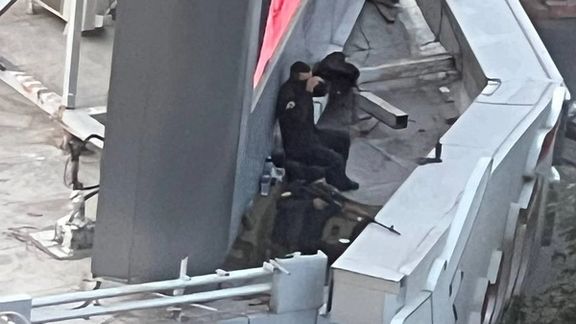
While ruling hardliners in Iran seek help from reformists to find a way out of their predicament, opposition is emerging to the idea both in the country and in diaspora.
Signs of the apparently incurable impasse have appeared in bitter comments by Iranian academics and political activists such as Mohsen Renani who has said in a note published on social media that "the government is trying to stop a flood by shooting at it, thinking that bullets can stop the deadly torrent. At the same time, intellectuals are standing behind the flood and trying to direct it."
Renani said that in the current revolt "the younger generation of Iranians is throwing up the remnants of an old and outdated government. They also do not want us intellectuals who kept silent for a long time in the face of discrimination, narrowmindedness and foolishness."He added that both the government and the intellectuals lag behind the new generation. The flood is raging on and what the government can do to stop it?"
As reports indicate in recent days, the government's last resort has been seeking help from reformists it neglected, suppressed and humiliated at least since 2020 if not long before that.
Referring to her meetings with Judiciary Chief Gholamhosein Mohseni Ejei and Security Chief Ali Shamkhani, Fatemeh Rakei, the deputy chairperson of the Reform Front has said: "It may be too late for reconciliation, but we still have time to stop bloodshed and violence." She said in those meetings she called on the government to stop violence against protesters and begin to listen to them instead. She also reminded officials that real tolerance and reconciliation should mean that everyone will be entitled to voice their views and demands.
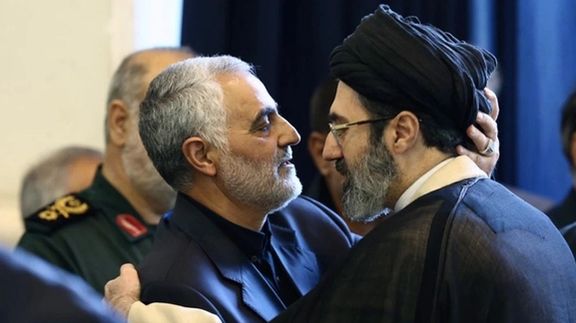
Former President Akbar Hashemi Rafsanjani's daughter Fatemeh has admitted she met with Supreme Leader Ali Khamenei's son Mojtaba but has said Mojtaba told her he has been left out of top-level decision making and has been "just nobody" since last year. In that case, it is not clear why he met Rafsanjani's daughter. Earlier, Security Chief Ali Shamkhani was quoted as having said that Rafsanjani and former leader Khomeini's family members have been called on to ask the protesters to stop their rallies.
Hundreds of Iranian social media users slammed the meetings with reform figures and the members of the two clans. Several social media users opined that the meeting with Mojtaba might be an indication that plans are underway to depose Khamenei and replace him with Mojtaba. Others said this was an indication that Khamenei must leave."
Outside Iran, Iranian political commentator Reza Taghizadeh said in a tweet: "They shamelessly took Taliban II to Kabul based on an inauspicious plot and once again made the reactionaries the rulers of Afghanistan. Bringing Islamic Republic II to power in Iran using government-backed reformists in partnership with leftists is a more dangerous plot."
Meanwhile, Iranian reformist political activist Gholam Ali Rajaei pointed out that serious change is not likely to be easy as "Clerics cannot tolerate not being in power." In another statement Rajaei said that as a first step the government needs to "shut off the annoying loudspeaker in Mashhad." Earlier Rajaei and other Iranian commentators had pointed out that Mashhad's Friday Prayer Imam Ahmad Alamolhoda and the editor of Kayhan newspaper Hossein Shariatmadari constantly pump out hate-speak, annoying key groups of politically active Iranians such as filmmakers, athletes, youths and women.
Blaming these radicals for recent attacks on clerics in public places, Rajaei said in his interview with Rouydad24: "Decision-makers should silence these individuals." His advice must have been already taken on board as Khamenei's office cautioned Alamolhoda to be mindful of what he says. However, there has been no indication of any attempt to silence Shariatmadari.
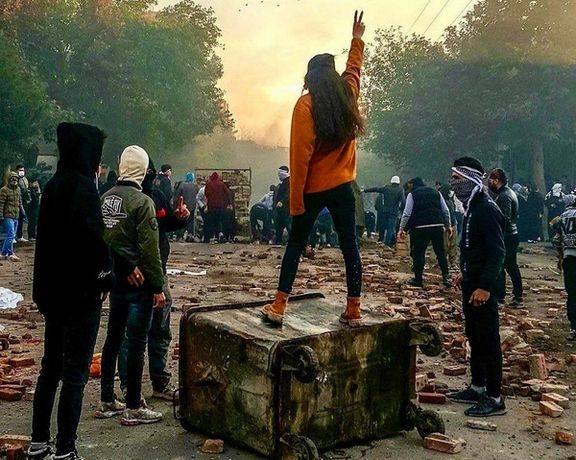
Thursday was another action-packed day for Iran, with protesters across the country out in solidarity with Kurdish cities, and UN Human Rights Council’s rapprochement of the Islamic Republic.
Following calls for nationwide protests on Thursday in support of the residents of Kurdish-majority areas, people in many cities held protests Thursday evening to show their solidarity.
People in several neighborhoods in the capital Tehran and several other cities such as Esfahan, Karaj, Oroumiyeh, Kermanshah and Hamedan held gatherings and chanted slogans against the Islamic Republic.
Kurdish-majority cities have been scenes of the regime’s brutal crackdown since at least last week. Thursday was also the day for funeral services and mourning ceremonies for dozens of people killed in the past few days.
Videos are slow to surface on social media due to restrictions on Internet access, but social media is full of pictures of bullet casings used against the people by security forces.
Merchants and storekeepers in dozens of Iranian cities also closed their doors Thursday and workers stopped work at some factories. Reports say business owners in the cities of Mashhad, Semirom, Naqadeh, and tens of Kurdish cities joined the nationwide strikes on Thursday.
The protests came as the UN Human Rights Council adopted a resolution against the Islamic Republic while China tried but failed to stop a motion before the council. The last-minute Chinese amendment to stop Iran’s rights violations was rejected with 25 against, six in favor and 15 abstentions.
The UN Human Rights Council voted to launch an independent investigation into Iran's deadly repression of protests, that has killed around 400 civilians.
US Secretary of State Antony Blinken welcomed the resolution, and said, "The fact-finding mission established today will help ensure that those engaged in the ongoing violent suppression of Iranian people are identified and their actions documented."
Also on Thursday, Iran’s Revolutionary Guard Chief Commander Hossein Salami warned the Islamic Republic's “enemies” that his forces are very dangerous and adversaries should be careful.
The Islamic Republic's Foreign Ministry also strongly condemned the UN Human Rights Council’s "historic mistake" of establishing a fact-finding mission to probe, saying it won't recognize the mission which "violates Iran sovereignty."
While the world is becoming more vocal against the government crackdown on dissent, a lot of regime insiders have also started expressing concerns over the killing of peaceful protesters.
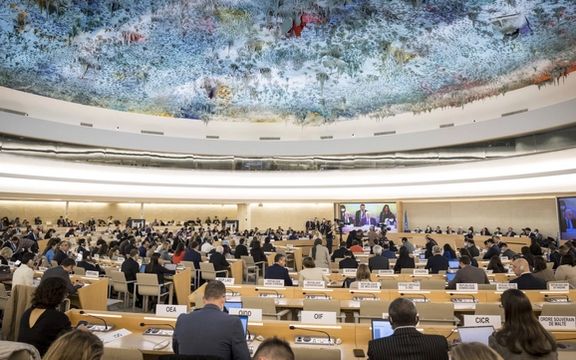
The UN Human Rights Council voted Thursday to launch an independent investigation into Iran's deadly repression of protests, that has killed around 400 civilians.
The motion passed with 25 votes in favor, six opposed and 16 countries abstaining amid cheers of activists amid an intensifying crackdown in Kurdish areas of western Iran over recent days.
The mission will collect evidence into abuses during the authorities' deadly crackdown. Evidence assembled by a mission appointed by the same council was later used for the prosecution of a Syrian ex-officer in Germany who was accused of war crimes.
US Secretary of State Antony Blinken welcomed the vote.
"Today's session leaves no doubt that the HRC's membership recognizes the gravity of the situation in Iran, and the fact-finding mission established today will help ensure that those engaged in the ongoing violent suppression of Iranian people are identified and their actions documented," he said in a statement.
The United States has sanctioned three Iranian security officials over the crackdown.
During his opening remarks, UN High Commissioner for Human Rights Volker Turk provided a review of what has been happening since mid-September, when Mahsa (Jina) Amini was killed in custody of the country’s ‘morality or hijab police’, igniting a nationwide uprising against the regime.
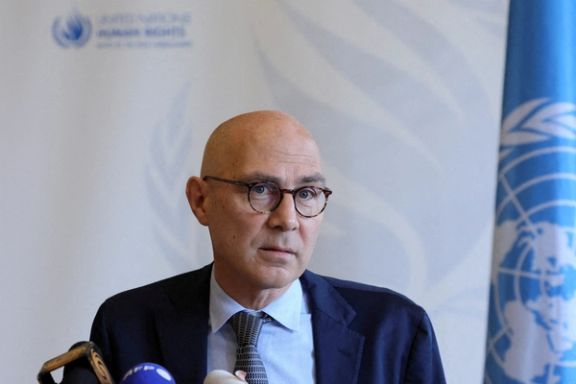
The 35th special session of the Human Rights Council was held following an official request submitted on November 11 by Germany and Iceland, as well as the support by over 40 other states.
Turk decried the killing of protesters and lack of accountability for the perpetrators of atrocities. He also expressed concern over "unnecessary and disproportionate" use of force against protesters and the high number of arrests as well as the death sentences handed to protesters.
"The old methods and the fortress mentality of those who wield power simply don't work. In fact, they only aggravate the situation. We are now in a full-fledged human rights crisis," Turk said, adding, "The unnecessary and disproportionate use of force must come to an end. I urge the government and those in power to listen.”
He also criticized the Islamic Republic for seeking to delegitimize the protesters and label them as agents of enemies and foreign states, adding that "That's a convenient narrative. As we have seen throughout history, it's the typical narrative of tyranny."
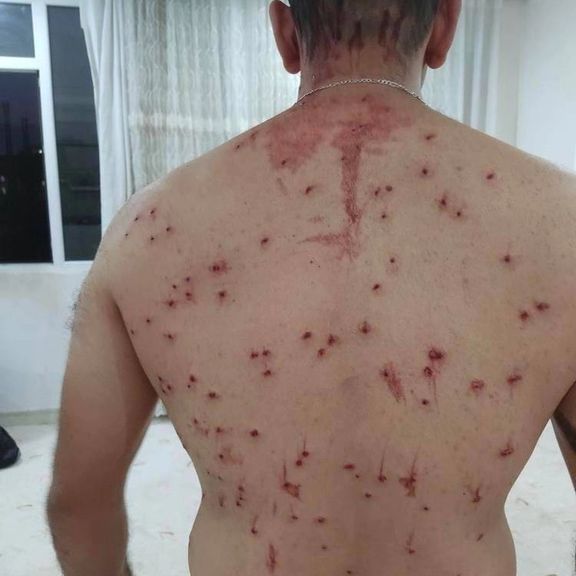
Javaid Rehman, the Special Rapporteur on the human rights situation in Iran, was next to take the floor and speak about the grim situation. "Structural impunity has fueled widespread patterns of unlawful killings, enforced disappearance, torture and other human rights violations in Iran," he said, urging the council to "establish an independent investigative mechanism on Iran."
“Both president and head of judiciary have emphasized the need to act violently without any leniency to protesters," he emphasized.
Rehman urged Iranian authorities “to stop using the death penalty as a tool for political oppression and release peaceful protesters. We have received reports of torture including sexual abuse. Victims' families face harassment and intimidation," he said.
Tehran's representative called the debate disgraceful and appalling, before talking about the human rights situation in other countries such as women in Yemen, Palestine and even the indigenous people of Canada. She then continued with a list of statistics about the number of women in different professions in Iran such as judges and sport coaches, something that seems untrue to the Iranian people on social media.
Tehran’s allies such as Venezuela, Cuba, North Korea and China, sided with the Islamic Republic and expressed their opposition to the session or any resolution against the Islamic Republic.
China tried but failed to pass an amendment to the motion that would have stripped out the main paragraph referring to a new investigative probe into Iran's suppression of mass protests.
The last-minute amendment was rejected with 25 against, six in favor and 15 abstentions.
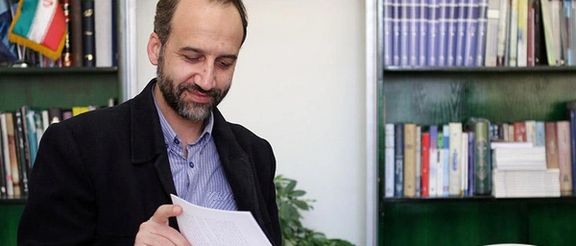
The former chief of Iranian state Radio and TV has condemned the killing of protesters by the regime saying those who order deadly violence are “murderers”.
Mohammad Sarafraz in a tweet on Thursday said, “government officials who kill unarmed people and defenseless women and children and the commanders who give orders are murderers.”
“They will be punished for their acts both in this world and in the court of divine justice,” underlined Sarafraz.
His comments show that there are some regime figures who are upset with Supreme Leader’s policies. As commander in chief of armed forces and in control of intelligence services, Khamenei is seen as responsible for the deaths of more than 400 people since September.
There has been no reaction from officials to Sarazfraz’s comments, but the regime has dealt with iron fist against any outspoken figure who expressed support for the protest movement so far.
This is not the first time Sarafraz criticizes the regime. As an experienced media executive, he had subtly and indirectly blamed Khamenei for systemic corruption and decay within the Islamic Republic.
Earlier, he wrote in his memoires extensively about the role of Ali Khamenei’s son Mojtaba and his involvement in financial corruption.
In November 2014, Sarafraz was appointed as the new chief of IRIB, however, he resigned from his post due to illness in May 2016.
Later in an interview with Shargh daily, Sarafraz said the “interference and meddling of intelligence organizations in IRIB’s internal affairs” was one of the reasons he abruptly resigned just 18 months into a five-year term.